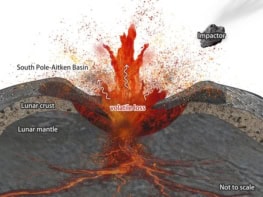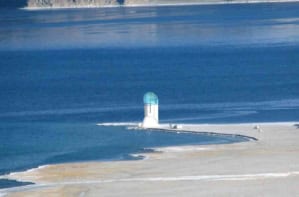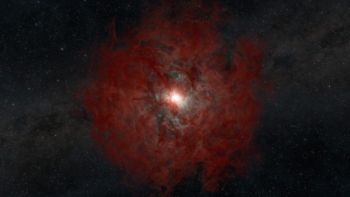The European Space Agency (ESA) has delayed the launch of its Rosetta mission following the crash of an Ariane 5 rocket last month. Rosetta, which will be launched aboard an Ariane 5, had to take off by the end of this month in order to rendezvous with its intended target, a comet called Wirtanen. But ESA remains uncertain about the reliability of the launcher and will keep the €1bn Rosetta mission on the ground while it waits for an alternative launch period. The delay, which is likely to cost the agency between €50m and €100m, means that Rosetta will probably have to be sent to a different comet.
Rosetta should have taken off from French Guiana on 12 January to meet up with 46 P/Wirtanen in November 2011. It would then have followed Wirtanen for about 18 months on its journey through the Solar System, deploying a lander to make detailed studies of the comet’s physical and chemical properties. But these plans now need to be overhauled after a new version of Arianespace’s Ariane 5 rocket exploded, a few minutes after take off in December.
This explosion was caused by a crack in one of the main engine’s cooling systems that developed because of a modification made to the new version of the launcher. Although this modification has not been made to the version of the rocket that will launch Rosetta, ESA and Arianespace say that they cannot be 100% sure at this stage that the generic Ariane 5 rocket is spaceworthy.
Peter Wenzel, head of ESA’s solar and solar-terrestrial missions division, says that Rosetta will be delayed by at least a few months, and that it could be put on hold by anything up to a year or two. Within the next two and a half years there are four or five separate periods, or “windows”, when ESA could launch the mission, and a number of different comets that the spacecraft could travel to. Over the next few months the agency will weigh up the pros and cons of each launch option, assessing in each case the mission’s scientific return, technical risks, financial cost and impact on the rest of ESA’s scientific programme. The agency’s member states will then decide which option to implement.
“This is a huge disappointment for everyone involved in the Rosetta project, and it will be a big task to keep the teams together for the revised mission,” says Wenzel. “But we are confident that when it does rendezvous with a comet, Rosetta will carry out some extremely exciting science. We want to learn what comets are made of and how they work.”



